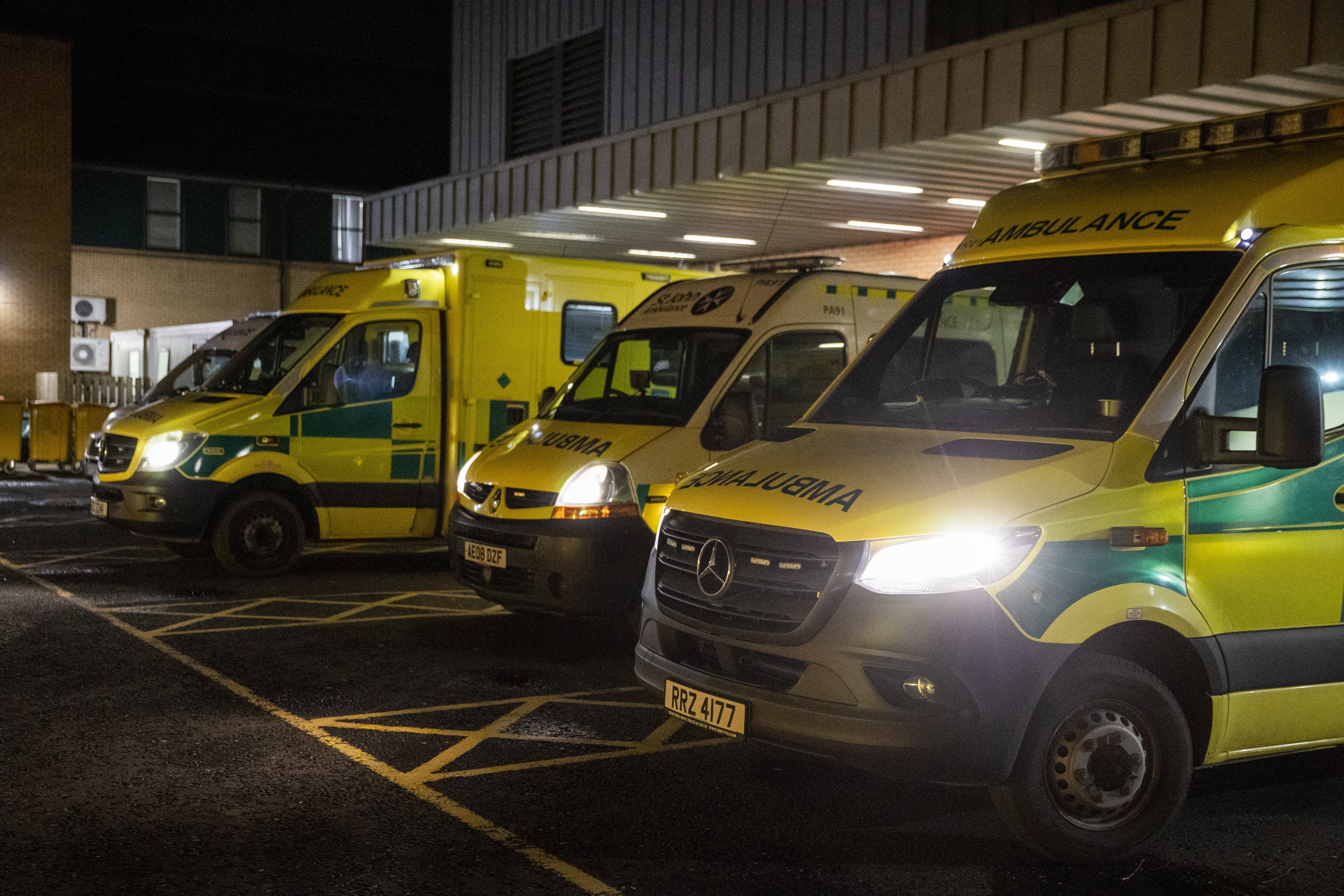‘Single biggest threat to patients’: 200,000 harmed by ambulance delays this year
‘Single biggest’ threat to patients in the NHS is now not getting an ambulance when they need it, ambulance leader warns

Almost 200,000 patients have come to harm this year because of ambulance delays, according to estimates, as NHS leaders are forced to act on the “unprecedented crisis”.
The Association of Ambulance Chief Executives says the “safety net” of emergency response for patients was now “severely compromised”.
Reports by the organisation, seen by The Independent, suggest that since January 190,000 patients have “come to harm”, with 20,000 of those experiencing severe harm, because of ambulance handover delays. The analysis includes risks to patients waiting at home after falls or strokes.
Since January, such delays have continued to increase, with 19,000 patients delayed outside hospital for at least two hours in June.
Victoria Vallance, director of secondary and specialist healthcare at the Care Quality Commission, told The Independent the escalating pressure on the NHS is “severe” and the CQC had “very real” concerns over the risk to patients waiting “unacceptable” amounts of time for help.
She said the CQC was also concerned about the impact the strain was having on paramedics and hospital staff.
The government has been criticised by Labour’s shadow health secretary Wes Streeting, who has called for ministers to “get a grip” on running the country.
He said: “Twelve years of Conservative mismanagement has left our ambulance service in crisis. Patients are left for far longer than is safe and lives are being lost as a result.”
The heatwave has escalated the already “severe” pressures on NHS ambulance services as trust leaders are warned that paramedics and patients waiting outside A&E in ambulances will be left in “dangerously hot and unsafe” vehicles.
The mounting pressure on the sector has prompted national NHS leaders to tell hospitals that ambulances cannot be kept outside emergency departments for longer than 30 minutes.
‘Horrendous’ 10-hour wait

Mariane Pierce, daughter of Dorrine Pierce from Eastbourne, described how her 86-year-old mother was forced to wait 10 hours for an ambulance on two occasions in the last three months.
Last Sunday she had a seizure and fell unconscious for four minutes. Ambulance services were called at 7:30am but did not get there until 5:30pm.
Ms Pierce said: “The worry and stress of that [wait] is horrendous – you’re just sitting there watching the clock, wondering what on earth is going on. [Mum] was worried the seizure would happen again. I know they’re stretched beyond their capacity, but at the same time somebody has to do something about it.”
Ian Sturgess’s mother, Sarah Varney-Burch from Kent, was also left waiting 10 hours last Sunday in pain in a “cold room” after she fell and broke her hip. Mr Sturgess said his mother developed a lung infection, which he believes was related to the long wait in the cold.
‘Dangerously hot’
Ambulance services in the West Midlands told staff in an internal message this week they should warn “category two” patients needing responses for stroke they could face waits of several hours, while leaked data for the Yorkshire Ambulance Service revealed that category two patients waited on average one hour and 17 minutes for a response.
In a letter, seen by The Independent,Yorkshire Ambulance Trust chief Rob Barnes told hospital directors to have a “zero-tolerance” approach to ambulance handover delays.
The letter added: “There is limited capacity to maintain safe temperatures on board stationary vehicles, and within a short period of time they will become dangerously hot and unsafe for both patients and ambulance staff. It is unacceptable to tolerate this practice.”
Delays in ambulance service responses are being worsened by delays in crews offloading patients to hospitals. NHS England on Friday was prompted to send a letter to all healthcare leaders.
It said hospitals must not hold ambulances for longer than 30 minutes outside A&E and warned: “The level of risk that ambulance services are carrying on behalf of systems has now further increased due to the heatwave we are experiencing, and which is forecast to carry on into next week, as well as increased staff absences due to Covid-19.”
NHS leaders were asked to “immediately” move patients who had completed their emergency care out of A&E. It added that healthcare leaders should increase efforts on staff wellbeing and support, including proper hydration.
As ambulance delays worsen, data seen by The Independent for May shows that more than 100,000 patients waited more than 12 hours from arrival – one fifth of those attending.
Katherine Henderson, president of the Royal College of Emergency Medicine, said in June that the 12-hour waits were “off the scale”.
Association of Ambulance Chief Executives managing director Martin Flaherty said: “First we must recognise the never-ending hard work and dedication of the NHS ambulance sector’s staff, who are doing their utmost to continue responding to patients when they need us most.
“However, the current pressures on the ambulance service are unprecedented and have been building for some time. The ultimate safety net for the NHS is the fact that patients who are severely ill or injured can access an emergency ambulance in a timeframe appropriate to their clinical condition. That safety net is now severely compromised and sadly patients are dying and coming to harm as a result on a daily basis.
“The single biggest issue impacting the ambulance sector’s ability to respond appropriately is unprecedented delays handing over patients at hospital.”
Mr Flaherty said the current situation would require “difficult” decisions from ministers and NHS England, adding: “The single biggest risk to patients in the NHS now is associated with not being able to get an emergency ambulance to a patient in the right timeframe.”
The Department for Health and Social Care was approached for comment.






Join our commenting forum
Join thought-provoking conversations, follow other Independent readers and see their replies
Comments